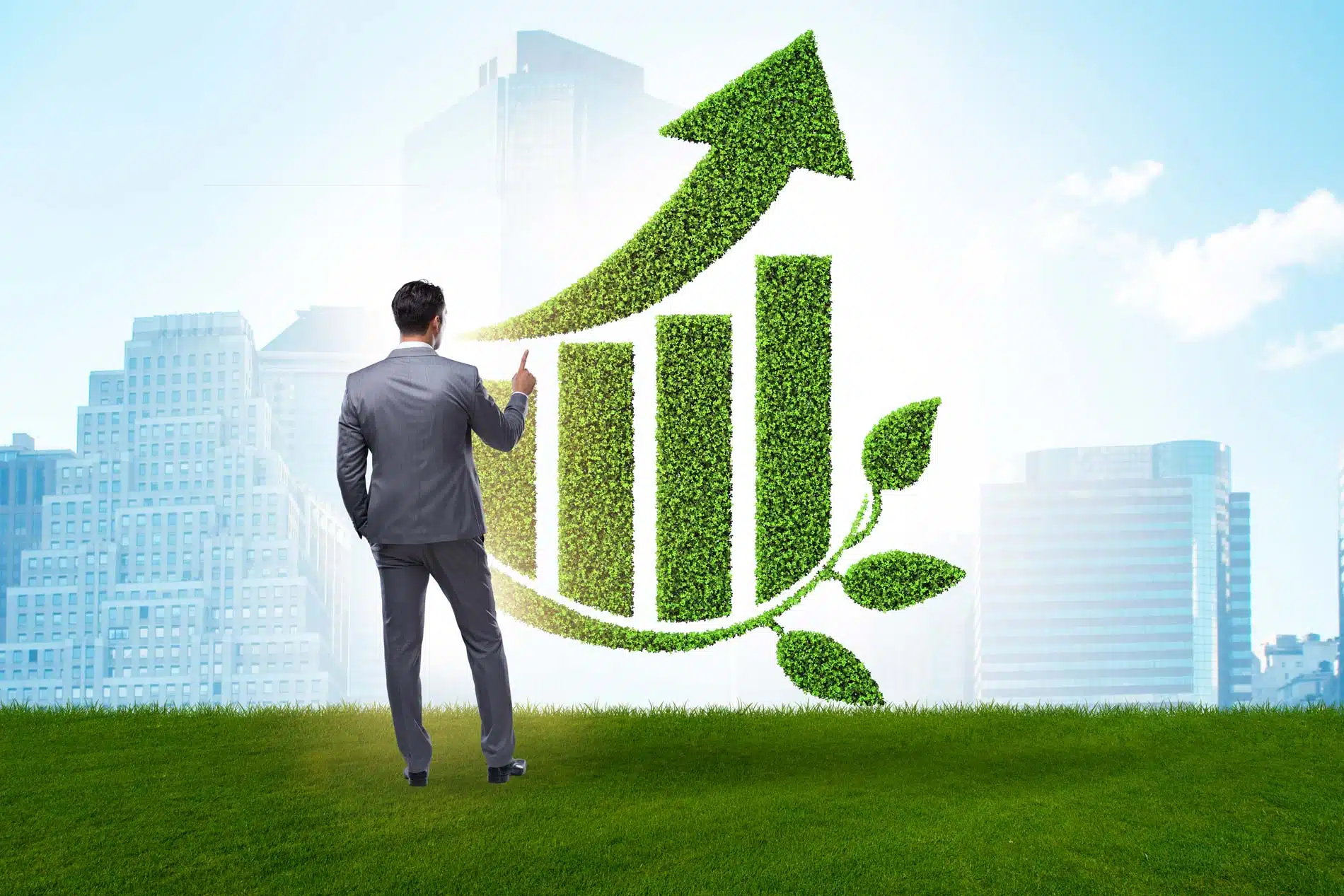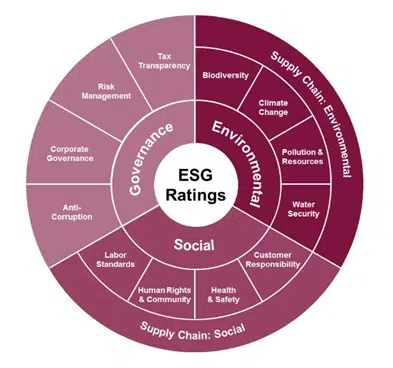
Environmental, social, and governance, or ESG investing, is a way to build a more ethical portfolio based on your beliefs to make the world a better place.
How this is accomplished is to eliminate certain companies or practices from a portfolio (such as oil/energy) and favoring environmentally friendly companies (such as renewable energy/solar). Funds may also underweight companies with a lower ESG score and increasing the weight of companies with higher ESG scores.
ESG Ratings
Companies are evaluated using ESG ratings and depend on environmental, social, and governance ratings to help determine the sustainability of an investment.
The Financial Time Stock Exchange (FTSE) a global provider of benchmarks visually illustrates the criteria of how an ESG company is evaluated below:

Considerations with Sustainable Investing
There are two equally important questions to ponder:
- To what extent does a sustainable investment reflect your values?
- To what extent does a sustainable investment strategy impact your expected return?
The degree of alignment matters.
If a sustainable portfolio has slightly lower expected returns but is a perfect reflection of your views and values, you may be willing to accept this trade-off. As the dispersion increases and the reliability of alignment with your values sways, you may be less inclined to adhere to the strategy.
ESG investing sounds great in theory but how has it held up in practice?
Returns
A 2019 paper tilted Aggregate Confusion: The Divergence of ESG Ratings by Rocco Ciciretti, Ambrogio Dalo, Lehmanertjan Dam evaluated stocks returns from companies with high ESG ratings. Looking at a global sample of 5,972 firms over 15 years they found that companies with higher ESG scores tended to deliver lower average returns than companies with lower ESG scores.
The authors hypothesized an investor’s preference (causing to deviate away from the market portfolio) is an active asset allocation decision driving decreased diversification and decreased expected returns.
As governments increase constraints upon businesses, they’re required to adapt. Adoption of new business practices may involve spending more money which impacts company profits (& subsequently stock prices).
Investing in ESG companies is not a robust and empirically sound risk factor that has rewarded investors with excess return.
Reliability
Since sustainable portfolios exclude so many companies, they are not as diversified and therefore have reduced reliability in their expected return.
If companies with high ESG ratings produced higher expected returns, the increased concentration would be viewed as a reasonable trade-off. The research points out that companies with higher ESG ratings have lower expected returns. This makes our portfolio less reliable with a lower expected return – not the most optimal trade-off.
Fees
According to a 2020 report by Morningstar, sustainable investors are paying a “greenium” relative to investors in standard funds. The report showed a higher average expense ratio for environmental, social and governance (ESG) funds (0.61%) compared with their traditional peers (0.41%).
Currently, investment bank Goldman Sachs is under investigation for claiming their ESG funds went through a quality ESG review when that is suspected to not be the case. In May, BNY Mellon settled with the SEC for misleading investors about ESG claims for $1.5M.
Sadly, many institutions are looking at this as an opportunity to charge investors higher fees for a similar product you can receive in index funds.
Summary
Having a sustainable portfolio can feel good but may not be aligning with your values the way you hope.
Many investors are best suited to hold a low-cost globally diversified portfolio and utilize charitable contributions to directly impact causes that speak to their values. Depending on your social or environmental issue of choice, each index provider doesn’t have an agreed-upon ESG rating. This means you might end up with higher costs for a sustainable portfolio while owning companies that conflict with your values and offer lower expected returns.



